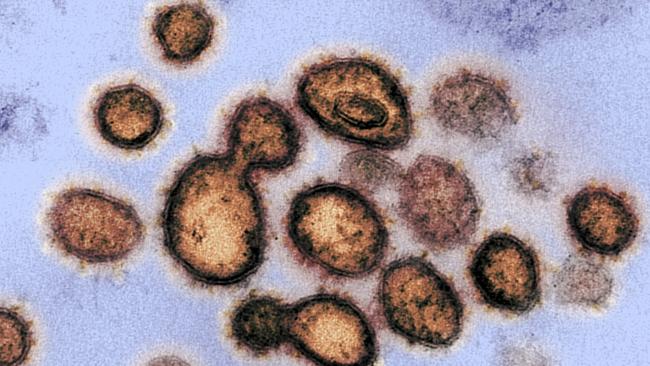How do I avoid coronavirus? And other vital questions
What is coronavirus, how deadly is it and what can you do to protect yourself? | All your questions answered

It’s official: the spread of the novel coronavirus, or COVID-19 as the World Health Organisation has named it, is a pandemic. But what is this virus, how deadly is it, and what can you do to protect yourself?
How is coronavirus transmitted?
COVID-19 is caused by a virus known as SARS CoV-2. We already have a number of other coronaviruses that circulate in the community and most of them cause common colds. Most of the available evidence indicates that coronavirus is spread via droplets, so if an infected person coughs or sneezes, and their secretions fall on you, you may be infected too. But the most common way of becoming infected is from touching contaminated surfaces. If an infected person coughs or sneezes into their hand, then touches a hard surface such as a doorknob or railing, and you touch that surface, you could also be infected. Some experts believe the virus may also be airborne, but the wider consensus is that it’s droplet-spread. That’s why it’s so important to wash your hands often, and try to avoid touching your face, because your hands can transmit the virus into orifices such as your nose, mouth or eyes.
Is COVID-19 deadly?
For most people, COVID-19 causes mild respiratory illness. Common symptoms are fever, shortness of breath and coughing. Some people also get a runny nose or muscle aches, although those are far less common. For some people, the disease can progress to pneumonia, and it usually gets worse in the second week. Estimates have varied, but the experience in China suggests the death rate may be about 1 per cent, although the WHO has put it slightly higher. But chances of dying depend significantly on age and state of health — the very young rarely seem to be affected at all, while the death rate in the elderly is much higher, about 15 per cent. People with comorbidities such as heart or lung conditions, or diabetes, have a higher risk of death.
Is there a cure?
There’s no treatment for coronavirus. Some hospitals in China and in Queensland have used antiviral drugs to treat sufferers, and there are clinical trials into the effectiveness of antiviral treatments. But the care of patients is largely what’s known as supportive care, or making the patient comfortable: for example, giving Panadol to lower fever or giving oxygen if someone is struggling to breathe. In critical cases, a person would be placed on a heart-lung life-support machine in an intensive care unit, but most people who contract the virus don’t need to go to hospital and can recover at home in isolation.
When will there be a vaccine?
A COVID-19 vaccine is probably still at least a year away. The University of Queensland has developed a vaccine candidate, and it’s being tested on animals at the moment. Human clinical trials will follow in a few months if the vaccine looks like it’s going to be effective. But getting a vaccine to the market is a slow process, because health authorities have to be 100 per cent sure it’s safe. Even once a vaccine is shown to work and to be safe, scaling up production of the vaccine can take time, so it will probably be a year to 18 months before a vaccine will be available.
Will schools and workplaces be shut down?
It’s likely that the coronavirus pandemic will have a major impact on your daily life in the short term. Mass events will be cancelled, sporting games will be played to empty stadiums, and it’s likely that at some point your workplace might ask you to work from home. Mass school shutdowns are a last-resort measure, and whether this happens will depend on what we learn about children’s role in transmitting the virus. But these major interventions in your life won’t last forever — we’re likely to see the virus peak in Australia some time during winter, and the number of cases will then start to decline. There’s a good chance that this virus will become endemic in the population like other coronaviruses.
What can you do to protect yourself?
The No 1 thing you can do to protect yourself from coronavirus infection is to wash your hands, often and thoroughly. You need to rub the soap for 30 seconds to kill all potential virus molecules. Washing for 20 seconds will only kill some of them. The WHO recommends singing Happy Birthday twice, but that can get pretty tedious, so choose your own favourite ditty — but make sure it’s a long one. Use hand sanitiser if you can’t get to a wash basin, but make sure it’s an alcohol-based sanitiser with at least 60 per cent alcohol content — the alcohol is required to kill viruses. Don’t touch your face, wash your hands before you eat, avoid touching hard shiny surfaces in public places such as on public transport, and stay away from sick people. Stay home if you’re sick. Cough or sneeze into your elbow, not your hand, or into a tissue.




To join the conversation, please log in. Don't have an account? Register
Join the conversation, you are commenting as Logout